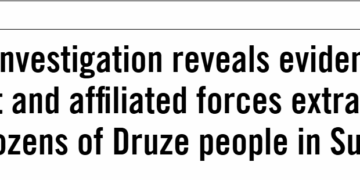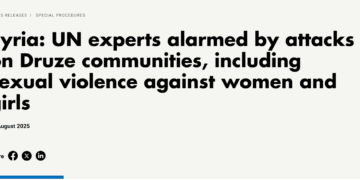Rima Fleyhan: SFL Executive Director
Overview:
In patriarchal societies and under oppressive regimes, political life generally cannot thrive, and women often struggle to achieve their social status or find a place in public life. These societies view women as subservient to men rather than as citizens. In such communities, men appoint themselves as guardians of women. According to this right they granted themselves, they determined these women’s reality, future, and way of life. Some of these men play various roles within the oppressive system by enacting laws, reinforcing a state of oppression, and a lack of citizenship. In such a situation, equality, human rights, and gender equality between women and men are not realized. Women’s self-confidence wavers, and as a result, the opportunity for personal development, including educational attainment, is limited.
Challenges of feminist struggles:
Syrian women who believe in their rights are fighting for them on two fronts. Firstly, as citizens, they are part of the people’s struggle to achieve full citizenship and ensure everyone enjoys their freedom and dignity within a democratic nation. Secondly, they are women seeking to secure all the rights outlined in international human rights law, women’s rights agreements, and conventions that protect their dignity as human beings and citizens. Syrian women understand that this cannot be achieved in any way without realizing full citizenship, freedom, and equality for all. Furthermore, this cannot be achieved without activating women’s roles in public life, politics, decision-making, shaping the country’s future, enacting laws, implementing transitional justice mechanisms, and participating at the governmental and parliamentary parties, local council, and administrative levels.
However, the task of this struggle is exceptionally difficult. It is a political confrontation and a societal rights-based, cultural, and economic struggle. In many cases, positive change is rejected and perpetuated by the ruling systems, tools, and repressive authoritarian forces in various forms, whether political, ideological, or military. Women’s roles are faced with challenges and resistance on multiple fronts simultaneously.
Of course, this oppression could not have prevailed without its original institutionalization, which supported this discrimination and deepened its roots in society. It is based, in turn, on a part of the backward cultural heritage and the interests of some religious institutions and political systems. It is implemented through a series of discriminatory laws of various types and the absence of laws that protect women from domestic violence. There are also insufficient social systems to deal with the victims, except through individual initiatives and some emerging civil society institutions. However, there are no national-level strategies in place. Therefore, Syrian women face violence and discrimination in their homes and communities, in front of the law, and within political structures and parties. Attempts are made to push them back when they try to participate in public life or attain active leadership roles.
The Syrian people took to the streets in March 2011, and everyone heard their voices for the first time. We learned together how to raise our voices for freedom. This was an opportunity for equal learning for all, women and men. This experience could have produced positive political and societal change, as seen in Tunisia.
Syrian women participated intensively in this phase, not only as protesters but also as leaders of protests, founders of revolutionary organizations, human rights activists, writers, politicians, journalists, doctors, relief workers, artists, detainees, and martyrs. The regime faced women’s voices with various dirty tools, including arrests, torture, persecution, threats against their children, and even murder. It also employed moral assassination through online armies, spreading rumors and defamation, as well as economic warfare through job dismissals and boycotts. This greatly frightened many women and made them hesitant to engage in public affairs, express their opinions, or assume leadership roles in this phase.
However, despite this, there were glimpses of hope in the peaceful revolutionary movement’s early days. This was evident on the freedom-seeking side, which could present a civilized image supporting women’s leadership participation in many cases, for example, the experience of local coordination committees. This drastically changed after the militarization of the revolution. As the armed conflict escalated, women’s voices diminished on the ground. Women found themselves responsible for safeguarding their families and children, securing their livelihoods amidst the crushing effects of war, which, in turn, increased the intensity of social violence. In addition to exploiting women and using them as a weapon of war carried out by the regime or various extremists and armed groups of all affiliations through grave violations, including rape, arrests, targeting, kidnapping, and assassination. These actions have affected numerous individuals, activists, and leaders within the peaceful movement.
Some segments of the opposition media also began to change and followed the shift on the ground. It became violent, discriminatory, and hostile towards women working in public affairs, fostering hatred in general and spreading rumors as part of ideological forces. This did not suit them, as women who emerged from all these traps were able to participate in these political forces or stood out as activists. They carried their strong and independent personalities, not following anyone, believing that their involvement in public affairs or these entities and forces was for their struggle and their nation. However, they were systematically broken down and subjected to violence, systematic exclusion, and moral targeting. Which sometimes included threats, spreading false information, and insinuations about their morals, integrity, behavior, political abilities, and competence. These were the means to keep these women from the political or public scene.
This is not only practiced by those who hold ideologies and cultures that reject women’s participation in leadership roles for religious reasons but also by some figures carrying the banner of secularism. They either look down upon women’s participation with disdain or view them as competitors in roles that men should traditionally fulfill, according to the mindset of some males in the political arena. This takes us back to the entrenched male-centered culture in our society.
In addition to the economic, social, and psychological challenges, especially when these women are mothers and witness their family psychological distress caused by this harm. This ultimately pushes many of them away from political work.




